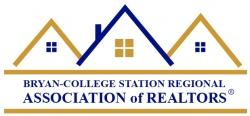HOAs and Coastal Living
For many buyers, a coastal home in Texas comes with a homeowners association, or HOA. These organizations can range from small groups managing shared roads to large associations overseeing entire communities with marinas, pools, and security gates. While HOAs can offer stability and amenities, they also bring rules, fees, and responsibilities that every coastal buyer should understand before signing on the dotted line.
Understanding HOA Fees
One of the first things to know is that HOA fees on the Texas coast can vary widely depending on the community and its amenities. A neighborhood with private beach access or a boat launch will naturally charge more than one with minimal shared services. Fees may be monthly, quarterly, or annually, and they can range from a few hundred to several thousand dollars per year. Buyers who forget to factor in these costs may find their budget stretched thin. Asking upfront about fees, what they cover, and whether there are any upcoming increases is essential.
Rules That Shape Your Lifestyle
Another important factor is the rules—or covenants—that an HOA enforces. On the coast, these often regulate things like exterior paint colors, short-term rentals, or where you can park a boat or RV. While these rules help maintain property values and community standards, they can also feel restrictive if you value flexibility. For instance, some HOAs strictly prohibit vacation rentals, which could affect your investment plans. Others may limit outdoor improvements or landscaping, which could impact your vision for the property. Reading the bylaws before buying ensures there are no surprises.
Maintenance and Community Benefits
On the positive side, HOAs often take care of maintenance that benefits every homeowner. This might include private roads, seawalls, boardwalks, or shared amenities like swimming pools. In coastal areas, shared maintenance is especially valuable because salt air and storms can take a toll on infrastructure. Knowing that your HOA has reserves and a plan for repairs can give you peace of mind. The trade-off is trusting the association to manage those responsibilities effectively, which is why reviewing the HOA’s financial health is so important.
Special Assessments and Financial Risks
What many first-time coastal buyers overlook is the potential for special assessments. If a storm damages a community’s seawall or dock and the HOA reserves aren’t sufficient, homeowners may be charged a one-time fee to cover the expense. These assessments can run into thousands of dollars. Before buying, it’s wise to ask not only about current fees but also about the association’s financial reserves, history of assessments, and insurance coverage. An HOA with healthy reserves is less likely to surprise homeowners with sudden costs.
The Importance of HOA Culture
Beyond rules and fees, every HOA has its own culture. Some are relaxed and neighborly, while others are highly structured with strict enforcement. Speaking with current residents before buying is one of the best ways to gauge whether the HOA culture fits your lifestyle. Do neighbors support each other during storms? Are rules enforced consistently? Does the board communicate openly with members? These factors can have just as much impact on your daily happiness as the property itself.
Making an Informed Decision
Living in a Texas coastal community with an HOA can be a great decision if you understand what you’re signing up for. Fees that cover valuable maintenance, rules that protect property values, and amenities like private beach access can make the lifestyle worth it. But ignoring the financial risks or underestimating how rules affect your plans can lead to frustration. Doing your due diligence upfront ensures that your HOA works for you, not against you.
Conclusion
Homeowners associations on the Texas coast can either enhance your coastal experience or create unexpected challenges. By thoroughly reviewing fees, rules, reserves, and community culture, you’ll be in the best position to decide whether a particular HOA is the right fit. The key is to go in informed, ask the right questions, and align your expectations with the community’s reality. When done right, an HOA can be the backbone of a safe, well-kept, and enjoyable coastal lifestyle.





